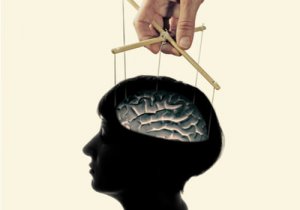Is Brainwashing Real or Just a Myth?

You’ve probably heard stories about people who join a religion, or a sect, and they suddenly become entirely different. They don’t think, act, or even feel the way they used to. We tend to say that they’ve been brainwashed, but we mean it in a colloquial way. But brainwashing is actually real, and there are very specific techniques involved.
Brainwashing has been a thing since about the 1950s, but people have been trying to alter the minds of other people for much longer. It’s just that the 1950s saw the first systematic attempts to develop a method to “reprogram” people’s brains in a consistent, efficient way.
The term brainwashing was coined by the journalist (and CIA agent) Edward Hunter in 1950. It then went on to be a major theme in novels such as 1984 and movies such as The Serpent’s Egg. That relationship to fictional stories made a lot of people think it was just a fantasy. Unfortunately, that isn’t the case.

The history of brainwashing
Going back to the Korean War, people in the United States were often shocked by the behavior of soldiers who came back after being prisoners. They acted very strange and had odd ideas. Some defended the communist regime after having just fought against it. Some people didn’t even come back at all. They simply switched sides.
Edward Hunter decided to study this. He discovered that the Chinese had developed techniques to reprogram the minds of its people during the famous Cultural Revolution. They then shared their methods with the Koreans, who used these techniques on war prisoners.
This is how Hunter discovered that brainwashing is different from torture, although torture can often be part of the process. The main difference is that there’s a very specific goal in torture, such as a confession or a betrayal of friends and allies. Brainwashing, on the other hand, is about entirely restructuring someone’s mind.
How do you “wash” a brain?
It has been found that there are four basic ways to get someone to change their beliefs and attitudes towards the world. These four ways are rational persuasion, suggestion, torture, and, lastly, brainwashing.
Persuasion is the only one that involves a “relationship of equals”. Each of the other three involves a power dynamic. Here are some of the specific mechanisms involved in brainwashing:
- Total control over a person’s communication with the outside world.
- Physical and/or psychological punishment as a response to disobedience. The brainwashers establish rules of conduct, and if you don’t follow them, they torture you in some way or another.
- An obligation to confess. They don’t allow you to have a private life.
- Rewards for obeying. They make you believe that by obeying the person in control, you’re saving yourself from torment.
- Dogmatic propaganda, which they’ll make you see as 100% rational. The ideas they give you are extremely precise.
- A simplification of intellectual activity. This keeps you from engaging in abstract, critical thinking.
- Giving another person the right to control your life and your fate for “your own good”.
All these mechanisms take advantage of our human need for a feeling of safety, belonging, and protection. You begin to see putting your life and ideas in another person’s hands as a necessary evil. It’s a way to get some stability and peace.

The role of coercion
Brainwashing wouldn’t be possible without coercion. We have a natural instinct to fight against losing our independence and sense of identity. This means that it takes an extreme amount of pressure to get someone to change their behavior.
You break a person’s natural resistance by invoking powerful emotions. At the same time, you also shoot their stress levels way higher than normal. For brainwashing to work properly, you need the person to be extremely emotional and stressed. That makes them much more susceptible to the pressure.
Unfortunately, the powers that be have honed this technique so well that they can pressure us and mold our minds almost without us realizing it. There are many people who voluntarily undergo this process, without putting up a fight.
Consumer culture is a perfect example of that. Our attachment and dependence on social media is another good example. If you think about it, they both involve brainwashing tactics. They’re so effective that people don’t even realize it’s happening to them. They think that buying things and sharing their private life online are signs of their freedom.
You’ve probably heard stories about people who join a religion, or a sect, and they suddenly become entirely different. They don’t think, act, or even feel the way they used to. We tend to say that they’ve been brainwashed, but we mean it in a colloquial way. But brainwashing is actually real, and there are very specific techniques involved.
Brainwashing has been a thing since about the 1950s, but people have been trying to alter the minds of other people for much longer. It’s just that the 1950s saw the first systematic attempts to develop a method to “reprogram” people’s brains in a consistent, efficient way.
The term brainwashing was coined by the journalist (and CIA agent) Edward Hunter in 1950. It then went on to be a major theme in novels such as 1984 and movies such as The Serpent’s Egg. That relationship to fictional stories made a lot of people think it was just a fantasy. Unfortunately, that isn’t the case.

The history of brainwashing
Going back to the Korean War, people in the United States were often shocked by the behavior of soldiers who came back after being prisoners. They acted very strange and had odd ideas. Some defended the communist regime after having just fought against it. Some people didn’t even come back at all. They simply switched sides.
Edward Hunter decided to study this. He discovered that the Chinese had developed techniques to reprogram the minds of its people during the famous Cultural Revolution. They then shared their methods with the Koreans, who used these techniques on war prisoners.
This is how Hunter discovered that brainwashing is different from torture, although torture can often be part of the process. The main difference is that there’s a very specific goal in torture, such as a confession or a betrayal of friends and allies. Brainwashing, on the other hand, is about entirely restructuring someone’s mind.
How do you “wash” a brain?
It has been found that there are four basic ways to get someone to change their beliefs and attitudes towards the world. These four ways are rational persuasion, suggestion, torture, and, lastly, brainwashing.
Persuasion is the only one that involves a “relationship of equals”. Each of the other three involves a power dynamic. Here are some of the specific mechanisms involved in brainwashing:
- Total control over a person’s communication with the outside world.
- Physical and/or psychological punishment as a response to disobedience. The brainwashers establish rules of conduct, and if you don’t follow them, they torture you in some way or another.
- An obligation to confess. They don’t allow you to have a private life.
- Rewards for obeying. They make you believe that by obeying the person in control, you’re saving yourself from torment.
- Dogmatic propaganda, which they’ll make you see as 100% rational. The ideas they give you are extremely precise.
- A simplification of intellectual activity. This keeps you from engaging in abstract, critical thinking.
- Giving another person the right to control your life and your fate for “your own good”.
All these mechanisms take advantage of our human need for a feeling of safety, belonging, and protection. You begin to see putting your life and ideas in another person’s hands as a necessary evil. It’s a way to get some stability and peace.

The role of coercion
Brainwashing wouldn’t be possible without coercion. We have a natural instinct to fight against losing our independence and sense of identity. This means that it takes an extreme amount of pressure to get someone to change their behavior.
You break a person’s natural resistance by invoking powerful emotions. At the same time, you also shoot their stress levels way higher than normal. For brainwashing to work properly, you need the person to be extremely emotional and stressed. That makes them much more susceptible to the pressure.
Unfortunately, the powers that be have honed this technique so well that they can pressure us and mold our minds almost without us realizing it. There are many people who voluntarily undergo this process, without putting up a fight.
Consumer culture is a perfect example of that. Our attachment and dependence on social media is another good example. If you think about it, they both involve brainwashing tactics. They’re so effective that people don’t even realize it’s happening to them. They think that buying things and sharing their private life online are signs of their freedom.
All cited sources were thoroughly reviewed by our team to ensure their quality, reliability, currency, and validity. The bibliography of this article was considered reliable and of academic or scientific accuracy.
- Rodríguez Carballeira, A. (1992). El lavado de cerebro. Psicología de la persuasión coercitiva. Barcelona: Editorial Boixareu Universitaria.
This text is provided for informational purposes only and does not replace consultation with a professional. If in doubt, consult your specialist.







